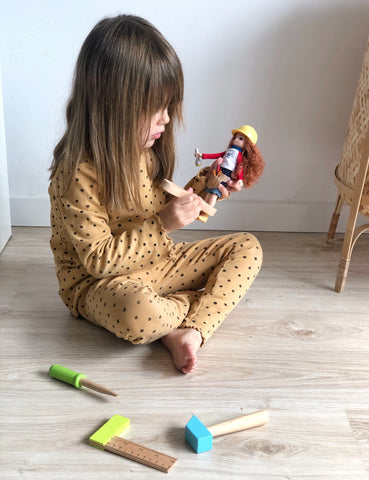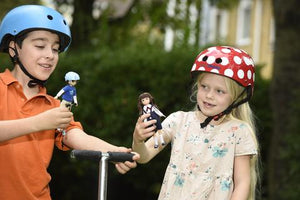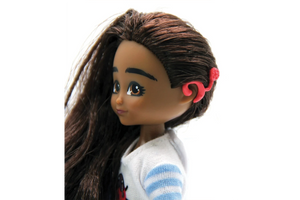Imagination play is crucial to a child’s development. It can help children with their social skills, their cognitive skills and it can boost creativity.
Let’s take a look at how this type of playtime can help your child develop.
What is Imagination Play?
Quite simply, imagination play is any type of play that occurs in a child’s imagination. It can involve children acting out scenarios based on things they have done, things they have seen other people doing or things they want to be doing.
Examples of imagination play include the following:
-
Children playing school
-
Children acting out a fairy tale princess scene
-
Playing cops and robbers
-
Getting creative with a cardboard box

What are the Characteristics of Autism?
There are many different types of autism and each child will have different symptoms that range in severity.
In general, autistic children have social and communication challenges which can make them misinterpret spoken language, facial expressions, tone of voice and expressions not made to be taken literally. They may also have difficulty recognizing their emotions and the emotions of those around them.
Autistic children are also likely to engage in repetitive behaviours such as rocking back and forth or spinning. They may insist on a certain routine and become uncomfortable if changes are made. They may also stare at lights or spinning objects.
Become a Lottie Super Fan!
- Be the first to hear about new Lottie Dolls
- Help to inspire the latest Lottie Dolls & accessories
- Suggest new ideas & activities you'd love to see
- Take part in exclusive launch team competitions
*Unsubscribe at any time!
Why Imaginative Play Can Help
The symptoms of autism cause autistic children to play differently than other children. It affects their ability to copy simple actions, explore the environment, share with others and imagine what people are thinking and feeling. Therefore, it inhibits their ability to engage in imagination play.
However, because imagination play develops the skills they are lacking, parents should do their best to encourage their child to engage in this type of activity. Studies have shown that autistic children that engage in imagination play have better language skills and more advanced thinking skills by the time they are 8 and 9 years old.
Encouraging Imaginative Play in Your Child
Because imagination play does not come naturally to autistic children, parents will have to go out of their way to encourage it. The first step parents should take to encourage pretend play is to observe their child playing. If they are doing something like eating pretend food out of play pots and pans, they are already engaging in imagination play.

So, the next step parents will want to take is to try and get their children to go a bit further. For example, they could make them pretend to make food in the play pots and pans or get them to share their food with their dolls.
Children might not catch on right away, but parents can motivate their child by telling them what to do over and over again, showing them what to do by pointing or even taking their hand to make them physically engage in the activity.
Imagination play is beneficial to all children, but it can play a vital role in how autistic children think and communicate. Encourage your child to engage in imagination play for some terrific bonding moments and experiences that will pay off later in life.
![]() Fast Shipping
Fast Shipping![]() Subscribe to our Newsletter
Subscribe to our Newsletter![]() 🌟 New Global Competition 🌟
🌟 New Global Competition 🌟















